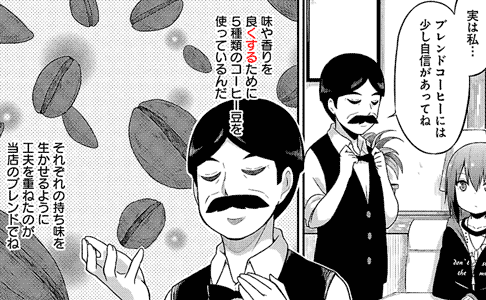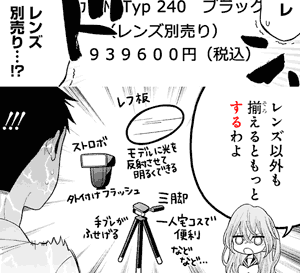In Japanese, ~ku suru ~くする (~ku ~く adverbial copula plus suru する) means "to make X become Y," "to turn X into Y" when the ~ku morpheme is attached to the stem of an i-adjective; when it's attached to the negative form of a verb (~naku suru ~なくする) it means "to make X stop being Y," or "to make X stop doing Y," in the sense of "X used to do Y, but you made it so X won't do Y anymore." The phrase ~ku dekiru ~くできる is its potential form, and ~ku itashimasu ~くいたします is a humble speech (kenjougo 謙譲語) variant.
- sora wo {akaku} suru
空を赤くする
To make the sky become {red}.- akai 赤い, i-adjective meaning the color "red."
- {koukoku wo hyouji shinaku} suru
広告を表示しなくする
To make [it] so [that] {[it] doesn't display advertisements}. (it used to show ads, then you did something so that it doesn't show ads anymore.)- hyouji shinai 表示しない, "to not display," negative form of the suru-verb hyouji suru 表示する, "to display."
- {nemurenaku} suru
眠れなくする
To make [it] so [that] {[one] can't sleep}.- nemurenai 眠れい, "to not be able to sleep," negative form of nemureru 眠れる, "to be able to sleep," potential form of nemuru 眠る, "to sleep."
Grammar
See the article about suru する for details about grammar and conjugation. This article is for examples only.
The phrase ~ku naru ~くなる is the unaccusative counterpart of ~ku suru ~くする.
- sora ga {akaku} naru
空が赤くなる
The sky becomes {red}.
The phrase ~ni suru ~にする is used with na-adjectives and no-adjectives (nouns). These words take the da だ copula, which becomes the ni に adverbial copula, while i-adjectives have the ~i ~い copula, which becomes the the ~ku ~く adverbial copula.
The phrase ~nai you ni suru ~ないようにする is similar but different to ~naku suru ~なくする used with verbs, and sometimes interchangeable. The difference being that ~naku suru is used only when one stops something directly, while ~nai you ni suru may also be used one causes a situation where something stops happening.(池上, 2002:1, example from page 11)
- watashi wa {{musuko ga heya kara denai} you ni} shita
私は息子が部屋から出ないようにした
I made [it] {so that {[my] son doesn't leave the room}}.
I made [it] {so that {[my] son can't leave the room}}. (potential entailment.)- For example: by locking the door, which would indirectly result in him not leaving the room.
- ?watashi wa musuko wo {heya kara denaku} shita
私は息子を部屋から出なくした
- Since whether the son leaves the room or not depends on the son's volition, and you can't directly alter their volition, this doesn't make sense.
The phrase ~you ni suru ~ようにする used with verbal stative predicates (stative verbs, habitual predicates), as verbs lack an adverbial form which suru requires, however the negative form is conjugated like an i-adjective, which does have an adverbial form (~ku), allowing the negative form to be used with suru without the ~you ~よう auxiliary.
Examples
- Context: a customer asks for a coffee blend, the owner of a coffee shop starts talking about his passion.
- jitsu wa watashi... burendo koohii niwa sukoshi jishin ga atte ne
実は私・・・ブレンドコーヒーには少し自身があってね
To tell the truth... I have a bit of confidence in [making] coffee blends, [you see].- X niwa Y ga aru - double subject construction.
- {aji ya kaori wo {yoku} suru} tame ni go-shurui no koohii-mame wo tsukatte-iru-n-da
味や香りを良くするために5種類のコーヒー豆を使っているんだ
In order {to make the taste and aroma {better}}, [I] use five types of coffee-beans.- yoku - adverbial form of yoi 良い, "good," synonymous with ii いい.
- kaori - noun form of kaoru 香る, "to smell."
- aji ya kaori ga ii
味や香りが良い
The taste and aroma are good.
- {{sorezore no mochi-aji wo ikaseru} you ni kufuu wo kasaneta} no ga touten no burendo de ne
それぞれの持ち味を生かせるように工夫を重ねたのが当店のブレンドでね
{Using multiple techniques {to be able to bring out the flavor of each [bean]}} is this store's blend, [you see].- ikaseru - potential form of ikasu 生かす, "to make effective use of," in the sense of ensuring something can display its full effect.
- kufuu - technique, trick, in the sense of simply doing something isn't good enough, so you add a something to it (the kufuu) to improve the result.
- kanaseru - to stack, i.e. instead of using just one kufuu, the owner uses multiple one on top of the other.
- Context: Gojou Wakana 五条新菜 looks up on the internet the price of a camera.
- kyuu-juu san man kyuu-sen roppyaku en (zei-komi)
939600円(税込)
Nine hundred thousand six hundred yen (with tax).- It's over 8000 dollars!
- zei-komi 税込み, "tax included," was spelled here between parentheses without okurigana.
- re, renzu betsu-uri...!?
レ レンズ別売り・・・!?
Lens sold separately...!? - {renzu igai mo soroeru} to motto suru wa yo
レンズ以外も揃えるともっとするわよ
{Plus other things besides the lens} [it] goes for even more.- suru する - to go for, to be priced at, to cost, among other meanings.
- soroeru - "to join in order to complete a set," in this case "adding" the other pieces of equipment makes it way more expensive.
- refu-ban, {moderu ni hikari wo hansha sasete} {akaruku} dekiru
レフ板 モデルに光を反射させて明るくできる
Reflector board: {by making light reflect on the model} [it] can make [the photo] become {brighter}. - sutorobo, soto-dzuke furasshu
ストロボ 外付けフラッシュ
Strobe: external flash. - sankyaku, te-bure ga fusegeru, hitori taku-kosu de benri
三脚 手ブレがふせげる 一人宅コスで便利
Tripod: can stop trembling of hand, useful when cosplaying at home alone.- fusageru - potential of fusegu 防ぐ, "to block," "to prevent."
- nado nado
などなど
Et cetera et cetera.


No comments: